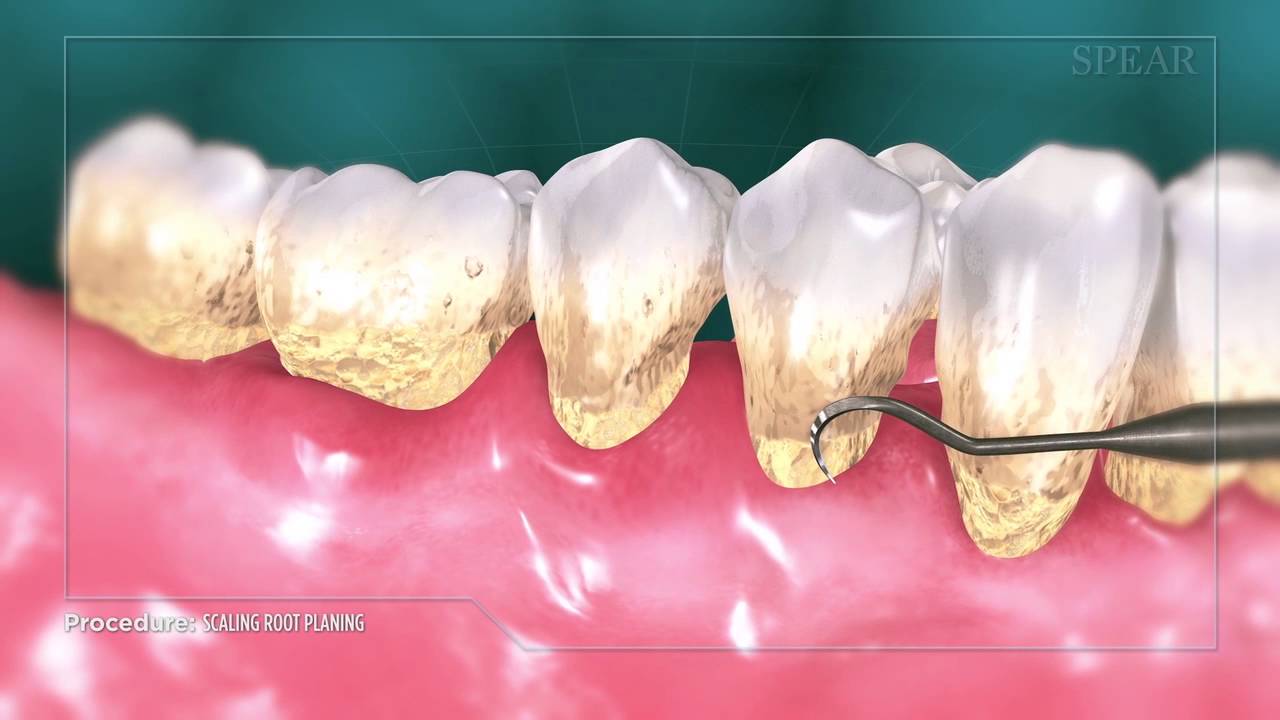Scaling and root planning

Scaling and root planning, also known as deep cleaning, is a non-surgical dental procedure performed to treat gum disease (periodontal disease) by removing plaque, tartar (calculus), and bacteria from below the gumline and smoothing the root surfaces of the teeth. It's typically performed by a dentist or dental hygienist and is an essential part of periodontal therapy for managing and preventing gum disease.
Here's how scaling and root planing are typically performed:
- 1. Assessment:
The dentist or dental hygienist will evaluate the health of your gums by measuring the depth of the pockets between your teeth and gums using a periodontal probe. Deep pockets are an indication of gum disease and may require scaling and root planing to remove the buildup of plaque and tartar.
- 2. Scaling:
Using specialized instruments called scalers or ultrasonic scalers, the dentist or dental hygienist will carefully remove plaque and tartar from the tooth surfaces both above and below the gumline. This process may involve manual scaling with handheld instruments or ultrasonic scaling using high-frequency vibrations to break up and remove plaque and tartar.
- 3. Root Planning:
After scaling, the root surfaces of the teeth are smoothed or planed to remove rough areas and bacterial toxins. This helps to prevent bacteria from re-attaching to the root surfaces and promotes the healing of the gum tissue.
- 4. Antimicrobial Treatment:
In some cases, antimicrobial agents or antibiotics may be applied to the gum pockets to help eliminate bacteria and promote healing.
- 5. Follow-Up:
Depending on the severity of gum disease and the response to treatment, additional appointments may be necessary for further scaling and root planing or maintenance therapy.
Scaling and root planing are typically performed over multiple appointments, with different areas of the mouth treated at each visit. The goal of treatment is to reduce inflammation, shrink gum pockets, and promote the regeneration of healthy gum tissue. It's essential for patients to maintain good oral hygiene practices, such as brushing, flossing, and regular dental check-ups, to prevent gum disease from recurring.
While scaling and root planing are effective in treating mild to moderate gum disease, more advanced cases may require additional treatments such as periodontal surgery or ongoing maintenance therapy. It's important to consult with a dentist or periodontist to determine the most appropriate treatment plan for your individual needs.
FAQ
What is scaling and root planing?
Why might I need scaling and root planing?
How is scaling and root planing performed?
Is scaling and root planing painful?
How long does scaling and root planing take?
What can I expect after scaling and root planing?
How often do I need scaling and root planing?
Are there any risks associated with scaling and root planing?
Can scaling and root planing reverse gum disease?
what is the cost of scaling and root planning in INDIA?
Services
Dental services
know more about your treatment , symptons , procedure , costs and FAQ's.